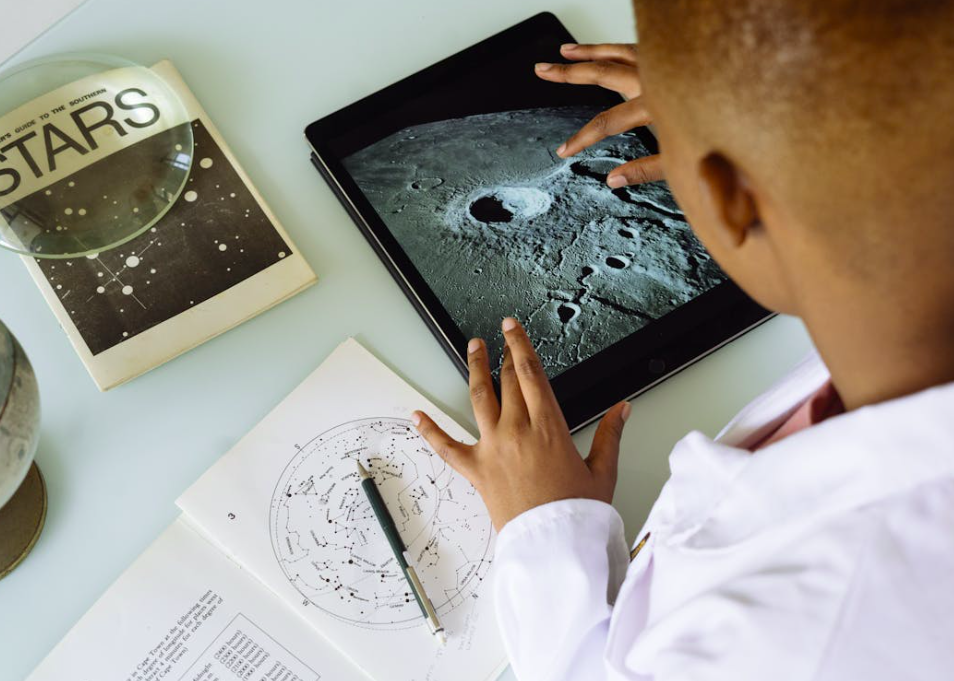
Introduction
In today’s rapidly evolving world, the need for forward-thinking healthcare solutions has never been more pressing. With of cutting-edge technologies and the increasing demand for quality patient care, the healthcare industry stands at a pivotal moment of transformation. This blog post delves into the impact of technology on improving healthcare services, emphasizes the importance of collaboration in advancing healthcare innovations, and explores various advanced solutions shaping the future of healthcare.
Telemedicine Revolutionizing Healthcare Delivery

Telemedicine: Bridging Gaps for Rural Healthcare Access
Telemedicine has emerged as a game-changer in healthcare delivery, especially for individuals residing in rural or remote areas. By leveraging telecommunication technologies, patients can now access medical consultations and services without the need for physical visits to healthcare facilities. Telemedicine is an intriguing and critical way to connect
patients in remote areas with medical specialists. With telemedicine technology, patients can consult with doctors using audio and video calls, messaging, and even transferring medical records electronically! This revolutionary approach expands healthcare access, especially for individuals living in underserved rural communities. The growth of telemedicine offers many advantages, as it can overcome barriers and provide patients with an array of healthcare services previously unavailable in these areas. Additionally, it supports healthcare providers in delivering care to remote patients, making it easier for individuals to access medical professionals without the necessity of traveling long distances just for a simple check-up or consultation. Moreover, telemedicine helps address the shortage of medical experts in rural areas by allowing remote consultations with specialists located in urban centers, ultimately providing comprehensive and timely care for patients. Without telemedicine, individuals residing in rural regions may face challenges in accessing necessary medical expertise locally, leading to delayed treatment and potential health complications.
Remote Monitoring: Enhancing Patient Care Beyond Hospital Walls
Remote monitoring capabilities enable healthcare providers to monitor patients’ vital signs, symptoms, and overall health status from a distance. This continuous monitoring ensures early detection of health issues, timely intervention, and personalized care for patients with chronic conditions. The implementation of remote monitoring technology has enabled health providers to track patient vital signs, behavior, and activities outside of a healthcare facility. This advancement has proven to be an effective method for improving outcomes by offering continuous care and timely intervention from afar. The ability to gather real-time data has allowed healthcare professionals to make informed decisions and adjustments to treatment plans without physical interaction with patients. This signifies a significant shift in the way healthcare is administered, with a focus on preventing complications and managing chronic conditions before they escalate. Moreover, remote monitoring has led to greater patient engagement and satisfaction, as they feel more connected to their healthcare team even when not physically present at a hospital.
Virtual Consultations: Improving Accessibility and Convenience for Patients
Virtual consultations have revolutionized the way patients interact with healthcare providers. Through secure and convenient video calls or messaging platforms, patients can seek medical advice, receive prescriptions, and follow up on treatment plans from the comfort of their homes. Virtual conferences have proven to be a beneficial tool in enhancing accessibility and convenience for individuals seeking medical advice. Through the use of technological advancements, patients can now easily meet with healthcare providers without physically visiting a clinic or hospital. This has made it more convenient for people to seek medical help from the comfort of their own houses, eliminating the need to travel long distances and wait in crowded waiting rooms. One key advantage of virtual meetups is their flexibility. Patients can schedule appointments at times that are more convenient for them being restricted by clinic hours. This means that individuals with busy schedules or mobility issues can still access quality healthcare without any hassle. Additionally, virtual consultations also reduce the risk of exposure to illnesses, particularly important during times of high contagious disease prevalence. By avoiding physical contact with other sick individuals, patients can prevent the spread of diseases and protect themselves and their loved ones.
Artificial Intelligence and Big Data in Healthcare

Predictive Analytics: Leveraging Data for Early Disease Detection
By harnessing the power of big data and predictive analytics, healthcare professionals can proactively identify patterns, trends, and risk factors associated with various diseases. This data-driven approach enables early detection, timely interventions, and improved patient outcomes. Leveraging data for early detection of diseases has become a significant concern in the medical field today. By combining information from various sources, such as medical records, laboratory tests, and genetics, healthcare professionals can employ predictive analytics to anticipate potential illnesses before they become full-blown problems. This approach involves analyzing patterns and trends in the data to identify premonitory signs that may indicate the onset of a disease. The application of predictive analytics has shown promising results in detecting conditions like diabetes, cancer, and heart disease at early stages allowing for more effective intervention and treatment. By harnessing the power of data-driven insights, healthcare providers can offer personalized care plans tailored to each individual’s risk factors and health history. This proactive approach can lead to better health outcomes and reduced healthcare costs in the long run. Overall, the use of predictive analytics in early disease detection represents a crucial step toward improving public health and advancing medical practices. By leveraging data effectively, healthcare professionals can stay ahead of potential health issues and provide timely interventions that can save lives. As technology continues to evolve, the role of predictive analytics in healthcare will only grow, offering new opportunities for preventing and managing diseases proactively.
AI in Diagnostics: Enhancing Accuracy and Efficiency in Health Assessments
Artificial intelligence (AI) algorithms have shown remarkable potential in interpreting medical imaging, analyzing lab results, and assisting healthcare professionals in making accurate diagnoses. AI-powered dAI in diagnostics is all about improving accuracy and efficient in health assessment! With the adoption of artificial intelligence in the medical fi, there has been a significant boost in the diagnosis and treatment processes. AI has revolutionized how doctors analyze imaging results, such as X-rays and MRIs, making it more precise and timely. One of the benefits of AI is its ability to spot patterns and anomalies that may not be obvious to human eyes! This can lead to earlier detection of diseases and conditions, potentially saving lives in the process. Furthermore, AI can assist doctors in decision-making by providing evidence-based recommendations for treatment. Although AI in diagnostics has shown promise, it is important to note that these technologies are still in their early stages. They require refinings and validations to ensure reliability and safety in medical settings. Healthcare professionals must work closely with technology developers to co-create solutions that truly benefit patients.
Personalized Medicine: Tailoring Treatment Plans Through Data Insights
The integration of AI and big data allows for the development of personalized treatment plans based on individual patient data, genetic information, and lifestyle factors. Personalized medicine tailors healthcare interventions to meet the specific needs of each patient, leading to more effective and targeted treatment outcomes. personalized medicine revolutionizes how healthcare providers adapt their care strategies to individual patients based on unique biological characteristics. in today’s fast-paced world, data insights play a pivotal role in informing these personalized treatment plans. rather than using a one-size-fits-all approach, personal medicine aims to customize care to each patient’s specific needs and medical history. Traditional medical practices often rely on general guidelines and broad treatment protocols that may not be effective for every patient. By integrating data intelligence, doctors can identify subtle differences in patients’ genetic makeups and predict how their bodies may respond to specific medications or therapies. one of the major advantages of personalized medicine is the ability to reduce adverse effects and improve overall patient outcomes by tailoring treatment plans to each individual, healthcare providers can minimize the risk of unnecessary side effects and enhance the efficacy of therapies.
Wearable Technology and Remote Patient Monitoring
- Wearable Devices: Empowering Patients to Take Control of Their Health
Wearable technology, such as smartwatches and fitness trackers, enables individuals to monitor their health metrics, track physical activity, and receive real-time insights into their well-being. These devices empower patients to actively participate in managing their health and wellness. - Remote Patient Monitoring: Enabling Continuous Care for Chronic Conditions
For patients with chronic conditions, remote patient monitoring systems offer a lifeline of continuous care and monitoring beyond traditional healthcare settings. By collecting and analyzing real-time health data, healthcare providers can intervene proactively, prevent complications, and improve disease management. - Real-Time Health Data: Enhancing Preventive Care Through Constant Monitoring
The continuous monitoring of health data through wearable devices and remote patient monitoring systems enhances preventive care initiatives. By identifying early warning signs, patterns, and trends, healthcare professionals can implement preventive measures, promote healthy behaviors, and optimize wellness outcomes.
Blockchain Technology for Secure Health Data Management
- Patient Privacy: Safeguarding Health Information Through Blockchain
Blockchain technology offers a secure and immutable platform for managing sensitive health data and ensuring patient privacy and confidentiality. By encrypting and decentralizing health records, blockchain enhances data security, prevents unauthorized access, and fosters trust in healthcare systems. - Interoperability: Seamless Data Exchange Among Healthcare Providers
Interoperability is a key advantage of blockchain technology, enabling seamless data exchange and communication among different healthcare providers, systems, and stakeholders. This interoperable ecosystem promotes care coordination, improves treatment outcomes, and enhances patient experiences. - Streamlining Processes: Improving Efficiency in Healthcare Administration
Blockchain streamlines administrative processes, such as claims processing, billing, and supply chain management, by eliminating intermediaries and reducing paperwork. This improves efficiency, reduces costs, and enhances transparency in healthcare operations.
Summary
In conclusion, the integration of advanced healthcare solutions, such as telemedicine, artificial intelligence, wearable technology, and blockchain, is revolutionizing the healthcare industry. By embracing innovation and collaboration, healthcare stakeholders can enhance patient care, improve health outcomes, and drive positive changes in the delivery of healthcare services. Healthcare organizations must adopt these advanced solutions to thrive in a rapidly evolving healthcare landscape.
Call to Action
As we move towards a future driven by advanced healthcare solutions, I urge healthcare stakeholders to embrace innovation, prioritize collaboration, and invest in transformative technologies. By working together to implement forward-thinking healthcare strategies, we can pave the way for a healthier, more accessible, and patient-centric healthcare system in the future.
FAQs
- How can healthcare organizations implement telemedicine effectively?
To implement telemedicine effectively, healthcare organizations should invest in secure telecommunication platforms, train staff on telehealth protocols, and ensure compliance with regulations governing remote healthcare services. - What are the potential challenges in integrating AI into healthcare practices?
Some potential challenges in integrating AI into healthcare practices include data privacy concerns, regulatory barriers, staff training requirements, and ensuring the ethical use of AI algorithms in patient care. - How does wearable technology impact preventive healthcare measures?
Wearable technology empowers individuals to monitor their health metrics, track physical activity, and receive real-time insights into their well-being, promoting proactive engagement in preventive healthcare measures.
By embracing cutting-edge technologies, fostering collaboration, and prioritizing patient-centric care, the healthcare industry can embark on a transformative journey towards better healthcare outcomes and improved patient experiences. Together, let’s innovate healthcare for a brighter, healthier future.
